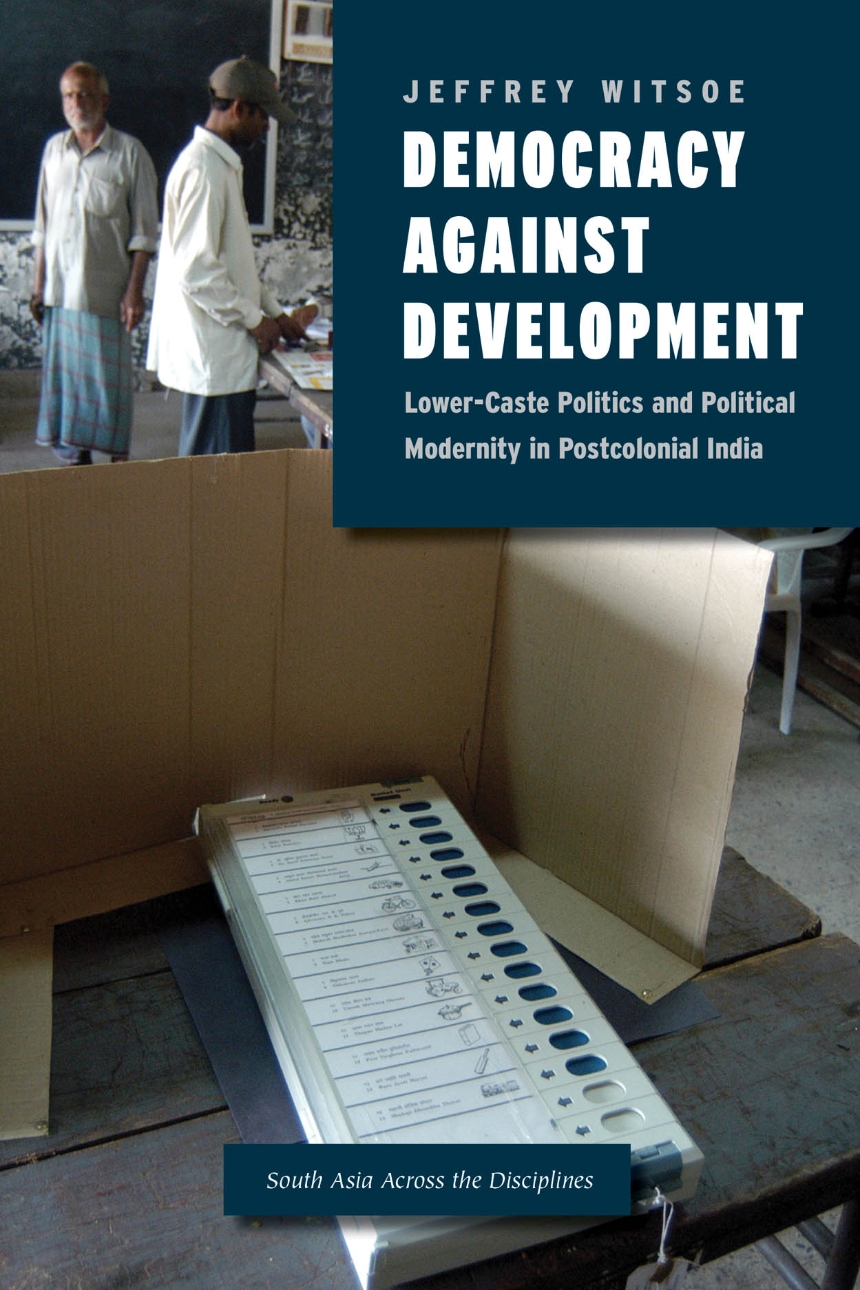Democracy against Development
Lower-Caste Politics and Political Modernity in Postcolonial India
Democracy against Development
Lower-Caste Politics and Political Modernity in Postcolonial India
Witsoe looks at the history of colonialism in India and its role in both shaping modern caste identities and linking locally powerful caste groups to state institutions, which has effectively created a postcolonial patronage state. He then looks at the rise of lower-caste politics in one of India’s poorest and most populous states, Bihar, showing how this increase in democratic participation has radically threatened the patronage state by systematically weakening its institutions and disrupting its development projects. By depicting democracy and development as they truly are in India—in tension—Witsoe reveals crucial new empirical and theoretical insights about the long-term trajectory of democratization in the larger postcolonial world.
256 pages | 1 line drawing, 8 tables | 6 x 9 | © 2013
South Asia Across the Disciplines
Anthropology: Cultural and Social Anthropology
Asian Studies: South Asia
History: Asian History
Reviews
Table of Contents
Introduction: Democracy and the Politics of Caste
Chapter 1: State Formation, Caste Formation, and the Emergence of a Lower-Caste Politics
Chapter 2: Lalu Yadav’s Bihar: An Incomplete Revolution
Chapter 3: Caste in the State: Division and Conflict within the Bihar Government
Chapter 4: Caste, Regional Politics, and Territoriality
Chapter 5: A Multiple Village: Caste Divisions, Democratic Practice, and Territorialities
Chapter 6: A Multiple Caste: Intra-Caste Divisions and the Contradictions of Development
Chapter 7: The Fall of Lalu Yadav and the Meaning of Lower-Caste Politics
Notes
Reference ListIndex
